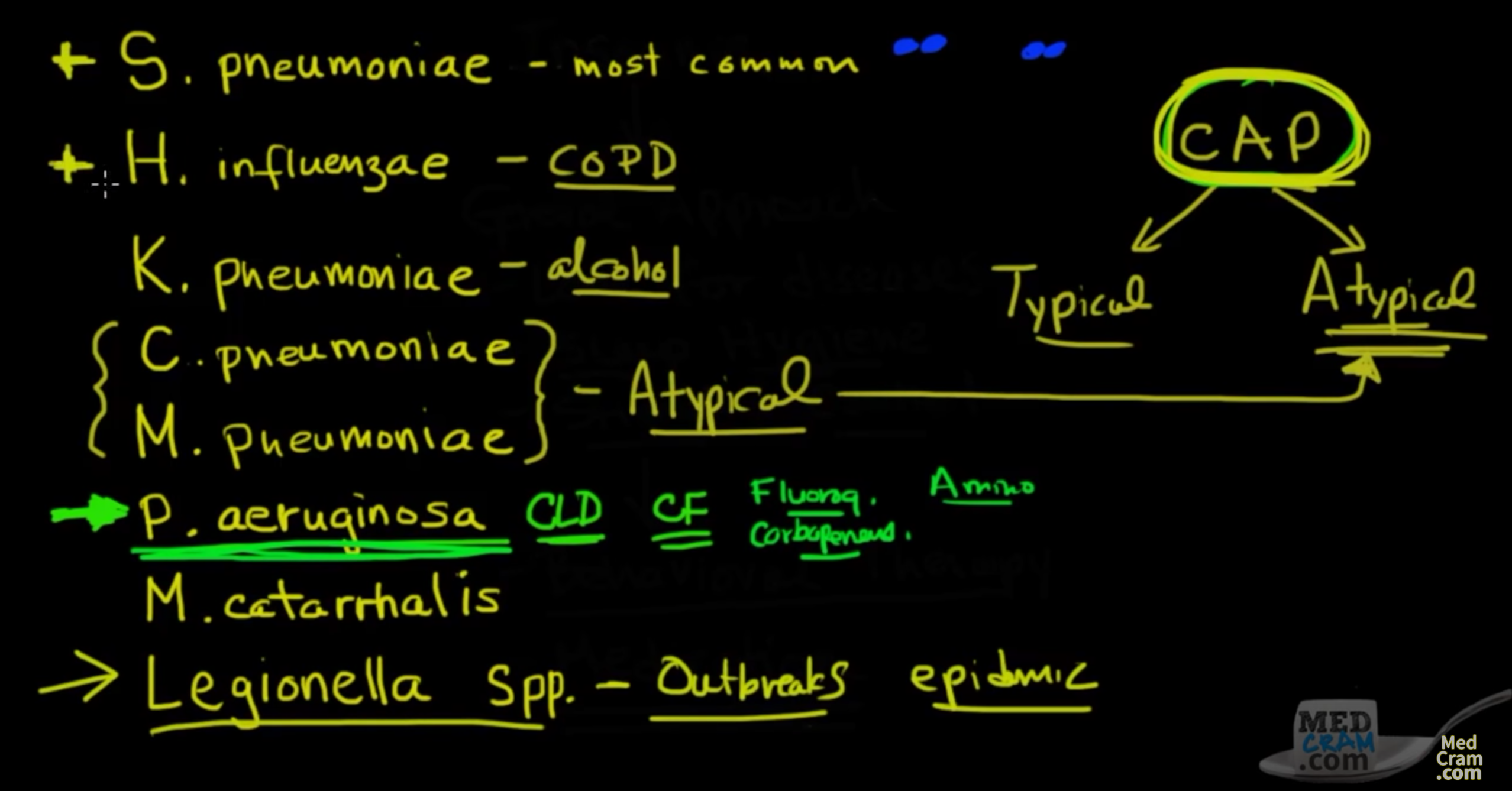So, you’re preparing to take your Family Nurse Practitioner Board Exam. One of the topics typically found on the FNP exam is Community Acquired Pneumonia, and we’ve found the topic to be complicated. So, naturally, we called upon our partners at MedCram to have Dr. Roger Seheult explain the question.
The Question:
What are the three bacterial organisms that are the most common causative agents of CAP in adults?
A. K. pneumoniae, P. aeruginosa, H. influenzae
B. M. pneumoniae, C. pneumoniae, S. pneumoniae (Correct)
C. H. influenzae, C. pneumoniae, M. catarrhalis
D. Legionella spp., C. pneumoniae, M. pneumoniae
Correct answer: (B) M. pneumoniae, C. pneumoniae, S. pneumoniae.
Explanation: These bacteria in addition to H. influenzae are considered the most common. According to the Infectious Disease Society of America the most common bacterial causative agents of CAP in adults are M. pneumoniae, C. pneumoniae, S. pneumoniae, and H. influenzae. Causative agents may differ for groups with comorbidities, suppressed immune systems, and who live in long term care facilities.
(A) K. pneumoniae is commonly associated with alcoholism. P. aeruginosa is commonly associated with COPD.
(C) M. catarrhalis is commonly associated with COPD and smoking. It is also one of the most common causes of AOM.
(D) Legoinella is an atypical CAP bacteria and is more commonly seen in communal settings such as hotels or cruise ships. It is spread through contaminated water, not person-to person.
References: Mandell LA, Wunderink RG, Anzueto A, et al. Infectious Diseases Society of America/American Thoracic Society Consensus Guidelines on the Management of Community-Acquired Pneumonia in Adults Clinical Infectious Diseases. 2007;44: S27-72. Retrieved from: http://www.idsociety.org/
Gilbert D, Moellering R, Eliopoulos G, et al. The Sanford Guide to Antimicrobial Therapy. Sperryville, VA – Antimicrobial Therapy. 2011.
Centers for Disease Control and Prevention Legionella (Legionnaires’ Disease and Pontiac Fever): Causes & Transmission. 2013. Retrieved from: http://www.cdc.gov/legionella/
Studying for your important exams can be so stressful, take your tests with confidence by practicing. We have FNP banks targeted to both the ANCC and the AANP FNP exams. Want more free practice? Sign up for a Free Trial.
Not sure if you should be taking the ANCC or AANP exam? Learn more.




